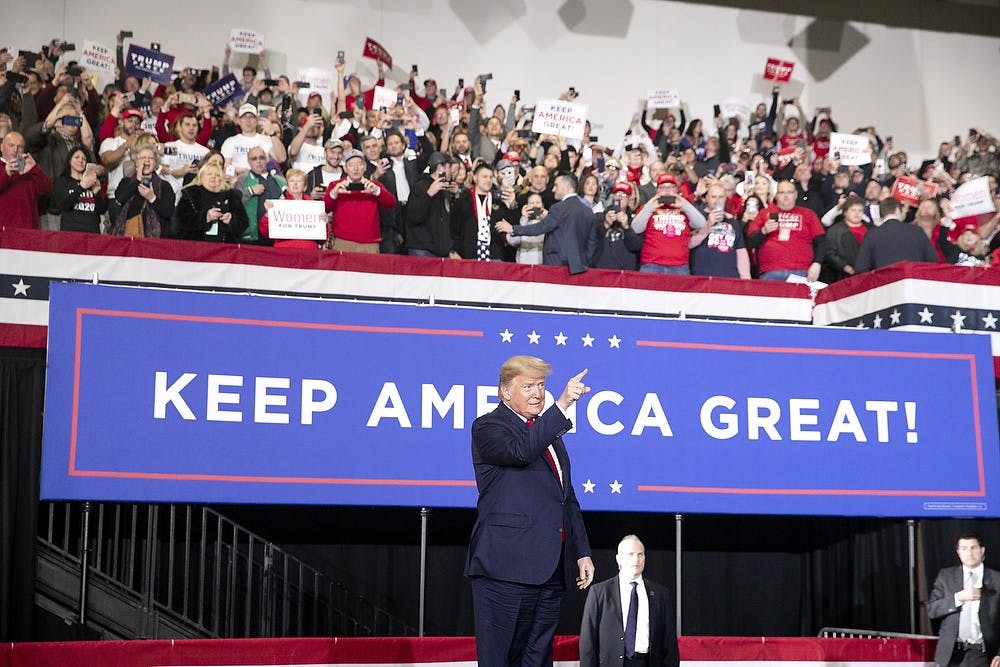The Senate impeachment trial is overwhelmingly likely to end this week with an acquittal of the president. This is set to occur without witnesses and with a defense argument suggesting that the president’s personal interests can be synonymous with the national interest. Some commentators have taken the inevitable outcome to mean the end of American democracy as we know it.
"Is this the week American democracy dies? Quite possibly," the New York Times' Paul Krugman said in a column Monday. He lamented how Republican senators, including those previously critical of the president, have fallen in line to support Trump's defense. Surely democracy — the power of people over their elected leaders — will be dead in the wake of this process, right?
But that is only true if democracy is equated with mere governance rather than a more robust system of values.
Engaging with democracy means more than focusing on the spectacle in Washington, D.C., or Indianapolis. Those macro-level outcomes are important, and they affect our lives and the lives of our loved ones. Yes, we should vote, and register our friends and family to vote.
But we also have to decide what we’re going to do about our challenges before the elections. If the solution is to wait for Election Day to roll around and take 15 minutes to vote, of course our democracy is declining in health.
There's so much we can do, and we must start before November.
Expanding democratic activities into our everyday lives and actions is the best and perhaps only way to avoid fatalism and despair. If you think democracy is dying, knock doors for a candidate you support. Join an activist organization like the Sunrise Movement, which has a local Bloomington hub, and take part in direct action campaigns.
Think about the 2015 Religious Freedom Restoration Act, or RFRA. The Indiana General Assembly's amendment that clarified RFRA to prevent discrimination wasn’t ratified because then-Gov. Mike Pence or other Republicans suddenly decided LGBTQ+ discrimination was wrong. RFRA was amended because of vocal opposition in the form of protests around the state, call-in campaigns and pressure on businesses to boycott the state until legislators changed the law.
If the people of Indiana had waited until November, the unadulterated RFRA would have hurt more Hoosiers and emboldened more bigotry. Instead, they took to the streets and to social media, asserting that their democratic values did not have to wait for an election or a formal venue to manifest.
The midterm elections in 2018 that resulted in victories for now-iconic progressives like Alexandria Ocasio-Cortez were not a fluke of democratic governance. They were the result of relentless grassroots campaigns over many months that came down to a broad base of face-to-face engagement with voters.
Another example of working between elections is the movement for universal health care. Even the idea of a public option was not mainstream when Barack Obama championed it. In the 2020 primary, however, supporting at least a public option if not Medicare For All is practically a requirement for Democratic candidates.
Those victories were the result of the long-term, quiet work of activists who slowly changed the terms of debate.
Why have hope for 2020? In spite of progressive defeats and setbacks under the Trump presidency, civil society and grassroots organizing has proven itself to be strong, manifesting in massive protests and higher voter turnout. Americans have proven themselves courageous, civically minded and willing to protect one another, from doctors attempting to give vaccinations at an ICE facility to lawyers offering services at airports when the Muslim ban went into effect.
Democracy is a reflection of its people. Vote. Organize. Have opinions. Get angry. But despair and paralysis over Trump's inevitable acquittal is a luxury we simply cannot afford if we want democracy — both as a form of government and as a deliberative, cooperative system of values — to thrive.
Kaity Radde (she/her) is a sophomore studying political science. She plans to pursue a career in public interest law.






